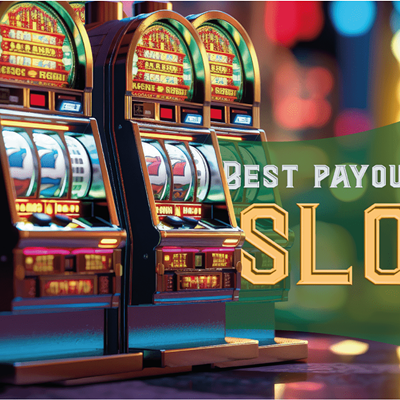Gambling could be an exciting and fun adventure. The ease of gambling from anywhere and the promise of instant rewards make it even more enjoyable. However, it could also become a severe problem when allowed to grow into an unhealthy obsession. To prevent Pennsylvanian bettors from getting drowned in the sinkhole of problem gambling, lawmakers are introducing a bill to stop the funding of gambling and lottery accounts with credit cards.
In this article, we'll examine how this legislation will shape the future of gambling in the state and its impact on the industry in general.
Overview Of The Senate Bill 1159
Mixed feelings trail the new gambling legislation as Senator Wayne Fontana fulfilled his earlier pledge to introduce a bill to help reduce problem gambling in the state. He mentioned the possibility of introducing a bill to the house in March during National Problem Gambling Awareness Month.
The SB1159 would no longer allow Pennsylvanian bettors to fund their online casinos, online lottery, and sports betting with credit cards. Fontana believed this move would encourage responsible gambling. According to him, easy access to credit would allow people to wager money they don't have, potentially leading to significant debt.
This is particularly important as the average American already has a credit card balance of $6294, according to recent data from the US Federal Reserve. Adding to that balance would raise alarm.
Other States and Jurisdictions With Similar Laws
Pennsylvania is experiencing a surge in gaming but isn't leading the race in clamping down on credit cards for gambling; instead, the Keystone State is following the lead of a few other states like Massachusetts, Iowa, and New Jersey. Massachusetts implemented a credit card ban for online gambling in 2017, and Iowa followed suit in 2019, prohibiting the use of credit cards for all forms of online gambling activities.
Next on the line is New Jersey, which has yet to have a complete ban. Instead, it restricts the use of credit cards for online casino games. Players can still use credit cards to gamble on sports in the state.
Beyond the United States, the United Kingdom joined the party in 2020, introducing restrictions on credit cards due to concerns over problem gambling. The UK Gambling Commission's CEO, Neil McArthur, praised the ban as a brilliant move to lessen the negative impacts of gambling exacerbated by the lockdown at that time.
Impact Of The Bill On Pennsylvanian Bettors and The Gambling Industry
What impacts would the bill have if it eventually scales through the House?
1. Reduce Problem Gambling
This is the major highlight of the bill. In his memo in March 2024, Fontana reported that based on the 2023 online gambling report, 40.7% of individuals who are involved in online gaming struggle with problem gambling. The easy access to credit cards is seen as a significant risk factor contributing to this. It drives people into piling up debts, chasing gambling losses, and eventually ending up in so much debt than they could afford to pay.
2. Shift to Credit Card Alternatives
The ban on credit cards would not end gambling in the state. Bettors would always find a way to indulge in their hobby. While credit cards may reduce the spending rate, they won't stop it entirely. As a Pennsylvanian bettor, you have other options. You can still bet with your debit card. You can also pay through e-checks, PayPal, Skrill, Neteller, Apple, and Google Pay. Other deposit and withdrawal methods include Cash App and Venmo.
3. Revenue Dip
Judging by the playbook of states that implemented the ban, the Pennsylvania gambling industry may see a temporary decrease in revenue. This is because credit card-reliant customers would be left with fewer options. However, recovery is possible once bettors adapt to other means of payment.
Following their 2017 ban, Massachusetts saw a temporary decline in online gambling revenue; however, the state was able to get back on track and adapt quickly to other payment methods. While expressing his standpoint, Fontana asserted that he's confident the gaming operators in the state would weather the revenue dip as well, especially with the Keystone market witnessing massive revenue growth recently.
4. Black Market Concerns
One thing about obsession is that people will always find a way to fulfill it. While Pennsylvania's move to restrict payment options is laudable, it needs to consider the possibility of its impact on the black market. Bettors who can't get over their urges would immediately turn to the black market as an alternative.
These unregulated platforms may offer riskier betting options, lack consumer protection, and operate outside legal boundaries. To ensure the law holds, state law enforcement agencies would need to intensify efforts to monitor and combat illegal gambling activities.
What's The Next Step Regarding The SB1159 Bill?
Fontana hopes the bill will be urgently treated and smoothly run through the Senate. The bill has been referred to a Senate committee for further action. While Fontana aims for swift passage through both chambers, the Pennsylvania legislative session extends until the end of November.
If the bill eventually doesn't pass this year, Fontana will not be ready to back off so quickly. He's willing to reintroduce it in subsequent sessions.
Frequently Asked Questions (FAQs)
1. When Did Online Gambling Become Legal In Pennsylvania?
Online gambling in Pennsylvania became legal only in the form of interactive gaming in 2018, and online gambling sites became available in 2019.
2. Is The Credit Card Ban For Online Gambling a Law Yet?
No. SB 1159 is a proposed bill being considered by the Pennsylvania Senate. It would have to pass both house chambers to be passed into law.
Ban On Credit Cards: Pennsylvania Strides Towards Responsible Gambling
Gamblers always look for the lucky day when their wallets jingle with riches. But this chase sometimes ends poorly for impulsive bettors. Pennsylvania's move to ban credit cards will be one of many to promote responsible gambling in the state.

















